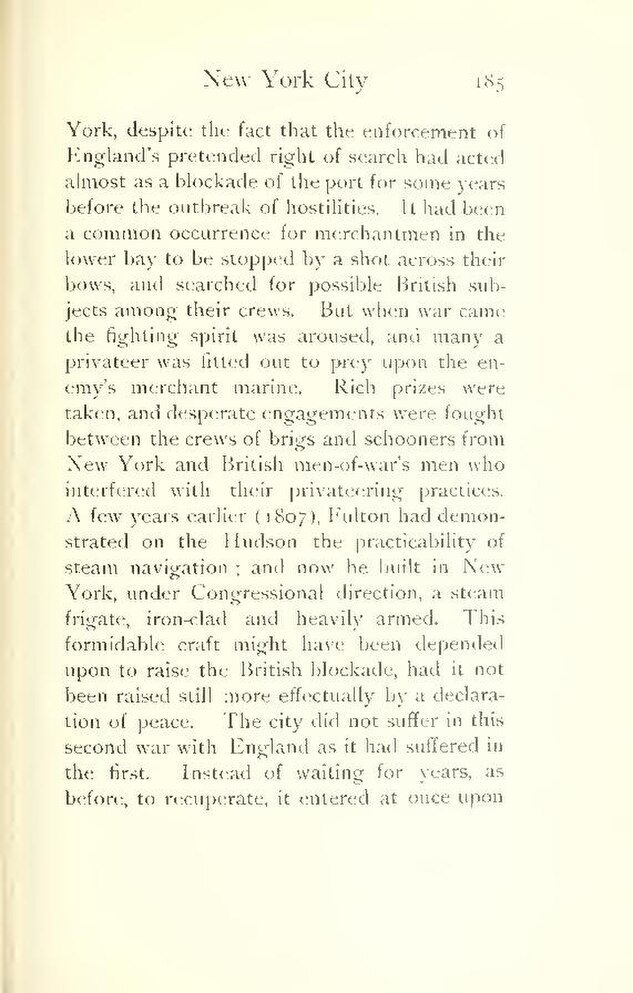York, despite the fact that the enforcement of England's pretended right of search had acted almost as a blockade of the port for some years before the outbreak of hostilities. It had been a common occurrence for merchantmen in the lower bay to be stopped by a shot across their bows, and searched for possible British subjects among their crews. But when war came the fighting spirit was aroused, and many a privateer was fitted out to prey upon the enemy's merchant marine. Rich prizes were taken, and desperate engagements were fought between the crews of brigs and schooners from New York and British men-of-war's men who interfered with their privateering practices. A few years earlier (1807), Fulton had demonstrated on the Hudson the practicability of steam navigation; and now he built in New York, under Congressional direction, a steam frigate, iron-clad and heavily armed. This formidable craft might have been depended upon to raise the British blockade, had it not been raised still more effectually by a declaration of peace. The city did not suffer in this second war with England as it had suffered in the first. Instead of waiting for years, as before, to recuperate, it entered at once upon
